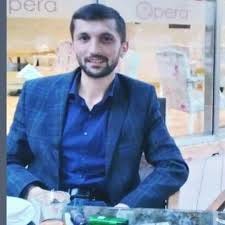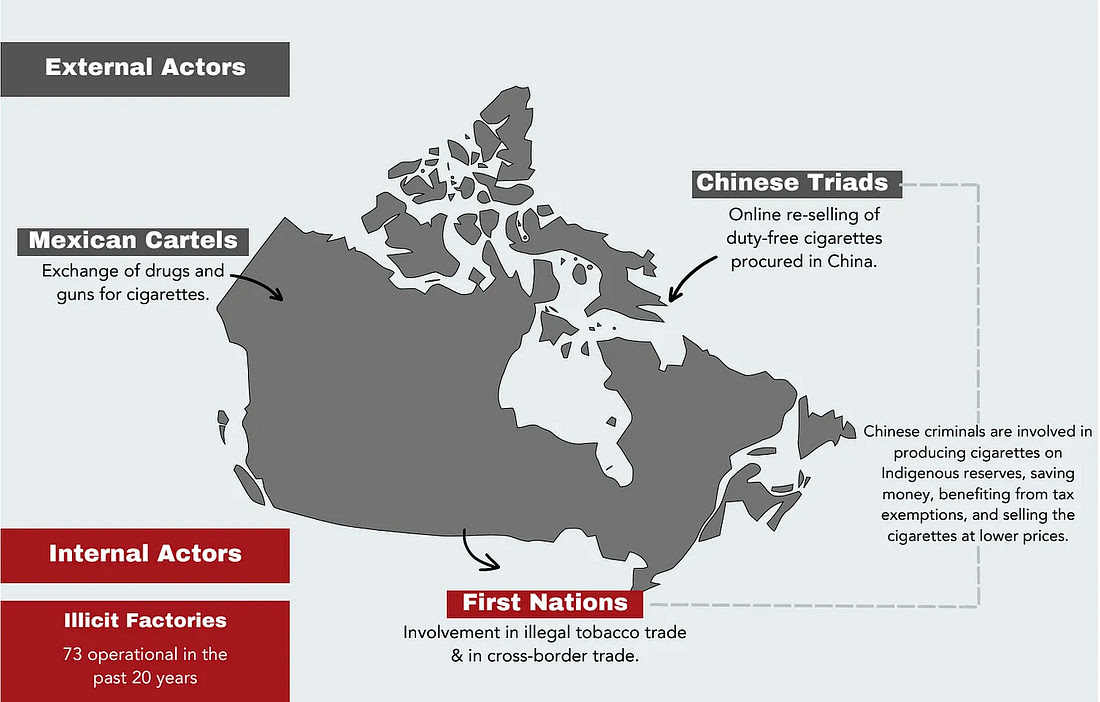Why Journalism Matters
Journalists imprisoned in Azerbaijan as crackdown intensifies. Investigative outlet brings Israeli and Palestinian journalists together. Mexican/Chinese criminals exploit native territories in Canada
3 minute read
Ongoing press crackdown in Azerbaijan leaves 25 journalists in jail
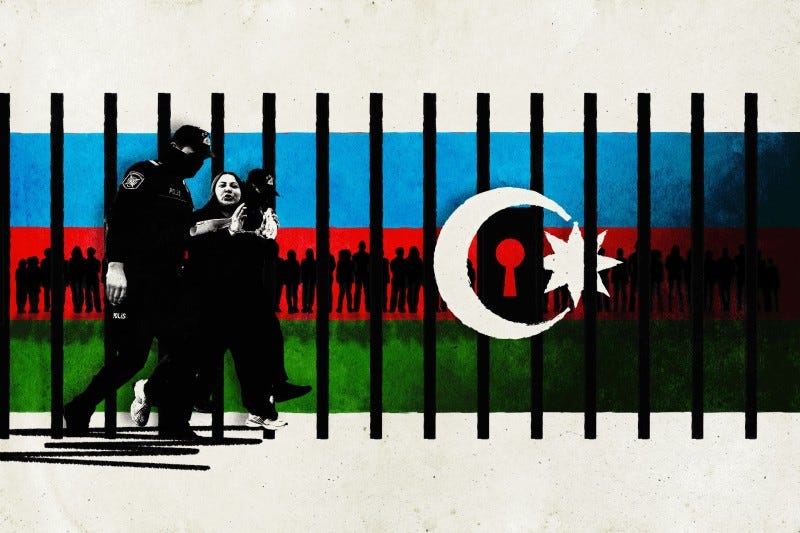
In our last edition we spoke about the new pope Leo XIV taking up a role as a champion of the free press around the world. (“The suffering of these imprisoned journalists challenges the conscience of nations and the international community, calling on all of us to safeguard the precious gift of free speech and of the press.”)
He could well start by concentrating his attentions on Azerbaijan ,the transcaucasian country in western Asia which has launched an unprecedented attack on independent media and jailed 25 journalists— almost as many as Russia.
Like many countries in western Asia Azerbaijan is buoyed by its oil wealth plus havng the advantage of an accessible trading position on the Caspian sea.
Although prosperous in many respects, it is dominated by dictatorial president Ilham Aliyev whose family controls the politics and economy of the country. As the Washington-based NGO Freedom House reports:
“Power in Azerbaijan’s authoritarian regime remains heavily concentrated in the hands of Ilham Aliyev, who has served as president since 2003, and his extended family. Corruption is rampant, and the formal political opposition has been weakened by years of persecution. The authorities have intensified their crackdown on civil liberties in recent years, adding to the ranks of political prisoners and leaving little room for independent expression or activism.”
There has been a relentless attack on journalists and independent media over the past 18 months. A report by The Organised Crime and Corruption Project (OCCRP) observes that the Azerbaijani regime has ‘ has eradicated any semblance of independent media…but as President Ilham Aliyev casts critical journalists as enemies of the state, they continue to try to hold power to account — from exile, or even from behind bars’.
A staggering number
Since November 2023, the Azerbaijani government has arrested nearly three dozen journalists and media workers. As mentioned above there are currently 25 journalists in detention, a staggering number for a country of only 10 million people, not to mention the estimated 300 other political prisoners held by the regime.
One of the journalists is Polad Aslanov who was arrested in 2019 and convicted of high treason in 2020. His wife Gulmira Aslanov said she believes his imprisonment is politically motivated and related solely to her husband's journalistic work uncovering corruption in government circles.
(Azerbaijan ranked 167th out of 180 countries in the May 2025 World Press Freedom Index by Reporters Without Borders (RSF) which cited a “new wave of fierce repression targeting the country’s few remaining independent journalists.”)
The Azerbaijani regime has been encouraged by the Trump administration in Washington which disbanded the USAID agency which was helping to support independent journalism in countries like Azerbaijan.
Trump administration
At a recent forum in Baku Aliyev thanked the Trump administration and urged them to go further.
As OCCRP reports: “Aliyev praised U.S. President Donald Trump’s freezing of aid to media that have called out repressive regimes like Aliyev’s — and encouraged him to go further.
“What President Trump started to do is very promising, but I think he should not stop,” Aliyev told the audience.
“You should go deeper. Human Rights Watch, Freedom House, Amnesty International, Transparency International — all this infrastructure of his political enemies must be totally rendered dysfunctional,” he added.
Reference
OCCRP: Azerbaijan media crackdown
RSF report on jailed media professionals
4 minute read
Heroic investigative outlet brings Israeli and Palestinian journalists together

The story of investigative journalism is often one of unacknowledged courage fighting its corner in the most unlikely of situations.
And so it is in Israel where a unique outlet, +972 and its sister publication Hebrew-language outlet Local Call is dedicated to covering the conflict in Israel and Gaza with the participation of both Israeli and Palestinian journalists.
As explained on the +972 website: “+972 Magazine is an independent, online, nonprofit magazine run by a group of Palestinian and Israeli journalists. Founded in 2010, our mission is to provide in-depth reporting, analysis, and opinions from the ground in Israel-Palestine. The name of the site is derived from the telephone country code that can be used to dial throughout Israel-Palestine.
“Our core values are a commitment to equity, justice, and freedom of information. We believe in accurate and fair journalism that spotlights the people and communities working to oppose occupation and apartheid, and that showcases perspectives often overlooked or marginalised in mainstream narratives.”
Nieman Foundation award
For its coverage of the war in Gaza and its impact, +972 was recognised in April 2025 with the 2025 Louis M. Lyons Award for Conscience and Integrity in Journalism by the fellows of the Nieman Foundation at Harvard University.
In a profile published by the Global Investigative Journalism Network one of +972’s major contributors Yuval Abraham describes the challenges reporting from within Israel on the war in Gaza. (Abraham, was the co-director and one of the key figures in the Oscar-winning documentary No Other Land.
First of all he revealed the curious dichotomy that exists between sources that he talks to. The first are whistleblowers from within the Israeli security forces who want fellow citizens to know what is going on, and secondly are those who are open and candid about what is happening because they feel all actions in this war are justified.
“When I approach some people, some of the sources I spoke with, they were drafted or re-drafted into the intelligence community after October 7,” (The date of the 2023 Hamas attack that led to the subsequent assault on Gaza).
“While they had been motivated by the horrors of that massacre to sign up, they very quickly realised they were now involved in atrocities.”
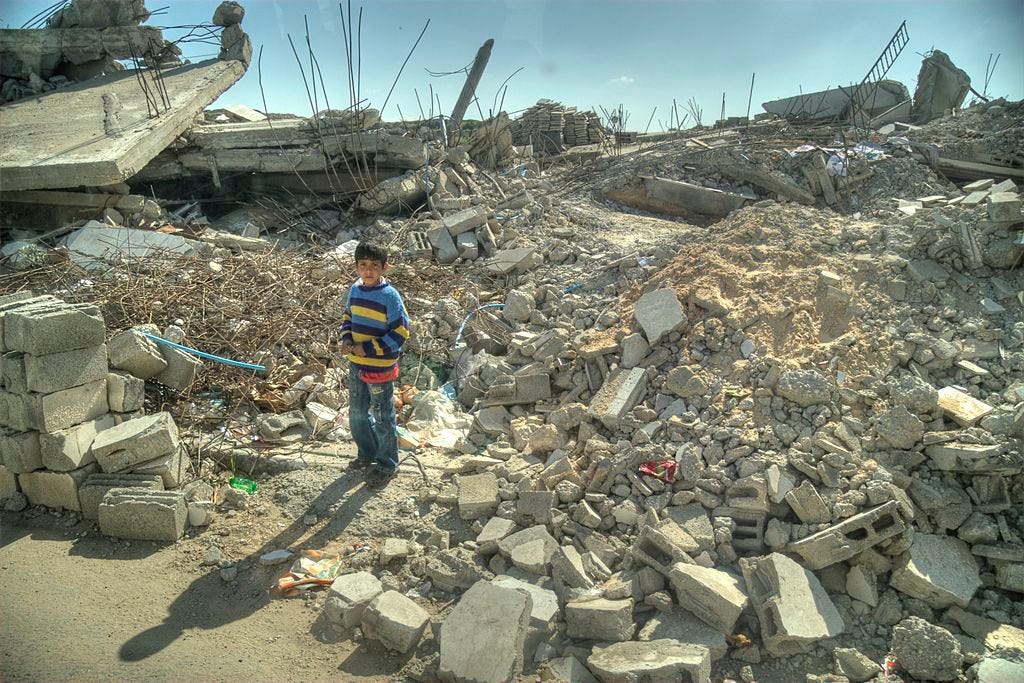
“This is the ideological group — people like whistleblowers — they feel have committed crimes, they have harmed Palestinian families, they have killed people and they wanted the Israelis to know about it [and then there are those who ] “don’t see what’s wrong with what they did.”
+972 and Local Call have published a series of investigations detailing the use of AI in the Israeli strikes on Gaza, reports into inmate accounts of torture in Israeli prisons, and unflinching coverage of the devastation in Gaza.
Military Censorship
What is not appreciated by much of the outside world is that the media in Israel operates under military censorship by the Israel Defence Force.
As Abraham explains: “Israel is the only country, at least in what’s called Western democracies, where anything involving the army, some kind of international relations, oil supply to Israel, any news has to go through military censorship under the Ministry of Defence… and you don’t know what will be the outcome.”
“The Israeli media — it’s not only that they are not interested in looking for stories that are critical of the military, that are critical of the war, that are looking at human rights abuses and crimes. I think even outlets that are more left-leaning or critical often tend to focus on individual actions of soldiers.”
“What connects much of our work is that we are focused on the protocol itself. On the rules themselves. We are looking at the decisions that are taken high up that go down. To me, that’s the most important and most deadly for the Palestinians in Gaza.”
“In Gaza, we are interested in the collateral damage. And not many journalists[in Israel] are interested in that.”
Ghousoon Bisharat, the editor-in-chief of +972, said that in ‘a highly divisive and politicised media environment, the two groups had succeeded in part because they had brought journalists from both communities together’.
She explained:“In all these investigations, Palestinian journalists and editors were involved. Because we are a binational media outlet, on every piece, in many pieces, we have Jewish Israelis and Palestinians involved in different stages of the reporting and editing. That makes a whole difference to the way the investigation is framed.”
The conflict in Gaza has been responsible for the deaths of 180 Palestinian journalists according to the Committee for the Protection of Journalists (CPJ).
Reference
GIJN report on investigative journalism in Israel
Mexican drug cartels and Chinese organised crime embedded in Canada’s indigenous territories
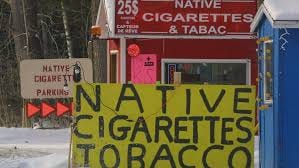
The often troubled story of Canada’s first nations people and life on their reserves has opened a new sinister chapter as exposed by the investigative journalism outfit, The Bureau, a Substack outlet written by award-winning reporter Sam Cooper.
In May a police raid in Ontario, the country’s most populous province uncovered a counterfeit tobacco factory on the Six Nations Reserve near the American border.
In an operation called “Project Panda,” heavily armed units of the Ontario Provincial Police units raided the factory on May 1 and May 7 capturing a staggering haul of illegal drugs and firearms including: 1,360 pounds of illegal cannabis, 3.16 kilograms of psilocybin, 15 firearms, and large pallets of counterfeit tobacco packaging, valued at over $CDN 3 million.
Also intercepted were two trucks leaving the site with 11.1 million contraband cigarettes worth an additional $2.8 million.
According to Cooper the raids have exposed “a long ignored reality: Mexican cartel networks have deeply embedded themselves in Canadian territory near the U.S. border—and are expanding in tandem with Chinese state-linked crime partners, using Indigenous land for counterfeit production and cross-border smuggling.”
The Bureau says this has become far more than a policing matter.
“It is a national security crisis—one that exploits Indigenous communities, land, and jurisdictional protections that have inadvertently shielded criminal networks now designated as terrorist threats. Worse still, the threat has long been known to Canadian, American, and Mexican authorities. Yet Ottawa has failed to act.”
An intelligence report published last year said that Canada had become a a “safe zone” for Chinese and Mexican cartel networks to traffic weapons, drugs, and counterfeit tobacco through Six Nations land.
“Mexican authorities have also stated that Canada is responsible for 12% of all the lost tax revenue for the Mexican Government from illicit cigarettes,” the report says, and alleges that “companies established in Six Nations have introduced up to 500 million cigarettes a year illegally into Mexico.”
Though the factories operate on Indigenous land, Ontario police have made clear they are controlled by non-Indigenous organised crime syndicates.
It is not clear how illicit goods and arms have been smuggled across both the American and Mexican border.
That same report reveals that more than 73 illicit factories have operated over the past 20 years, linked to 173 organized crime groups, including Mexican and Chinese operations.
The Bureau cites confidential sources who say that Mexican cartels are behind the factories and reserve-based casinos. “Their presence is enabled by jurisdictional grey zones, preferential tobacco tax exemptions, and a persistent political unwillingness in Ottawa to confront the threat.”
Cooper adds: “Behind the Mexican cartels, as in Canada’s fentanyl superlab economy, loom Chinese Triads. Canadian intelligence has long warned of this dual-threat structure. Sources close to Project Panda confirm the violence is intensifying, with shootings and firebombings linked to cartel enforcement groups. Seizure evidence shows high-powered firearms and growing operational sophistication.”
According to the Bureau there was not much mainstream coverage of Project Panda with no direct of the connection to Mexican cartels and Chinese triads.
But The Bureau’s investigation which included document analysis and interviews with law enforcement sources indicates a ‘deeper crisis’.
“Canada’s national security vulnerability runs through southern Ontario and Quebec—stretching from the Six Nations of the Grand River, into Brantford, along the St. Lawrence, and directly to the U.S. border.
“This corridor has become a protected staging ground for Chinese organized crime, long embedded with the Hells Angels, now operating in concert with Mexican cartels.”
Reference
It’s free to subscribe and you can cancel anytime, so give it a try!
Contact us on greatjournalismwjm@gmail.com
Follow us on Facebook and Twitter
facebook.com/whyjournalism matters
X-twitter @JournalismWhy




